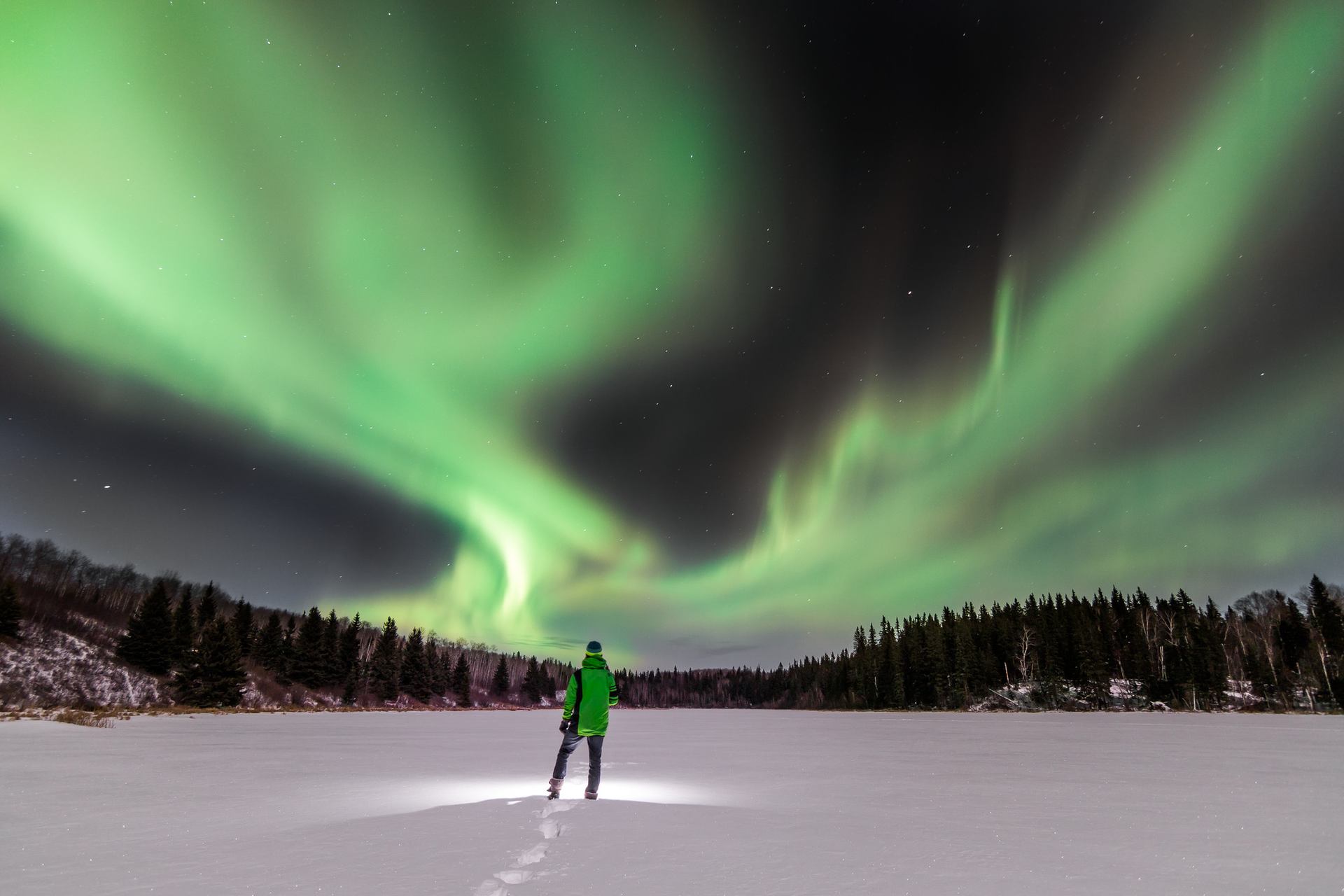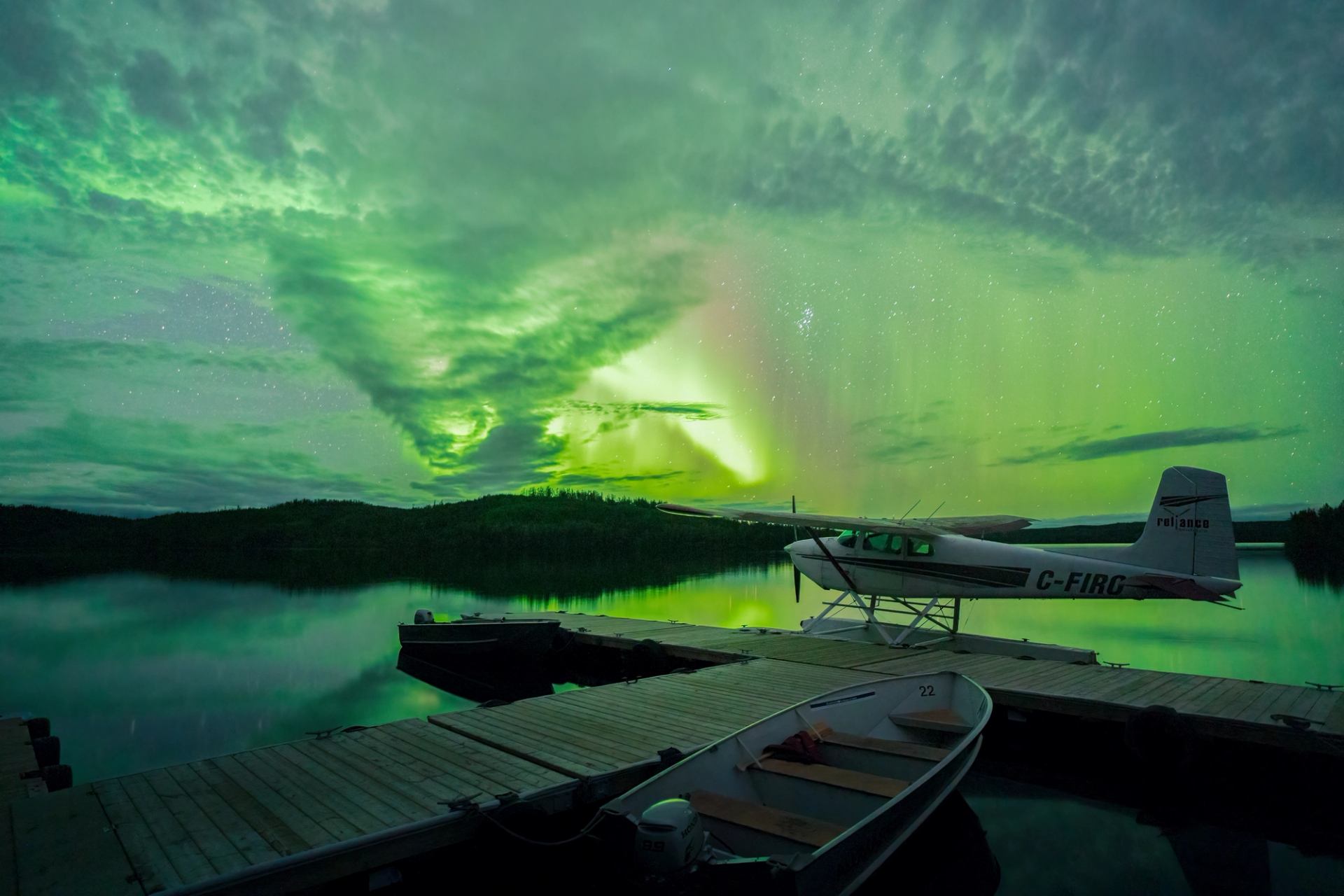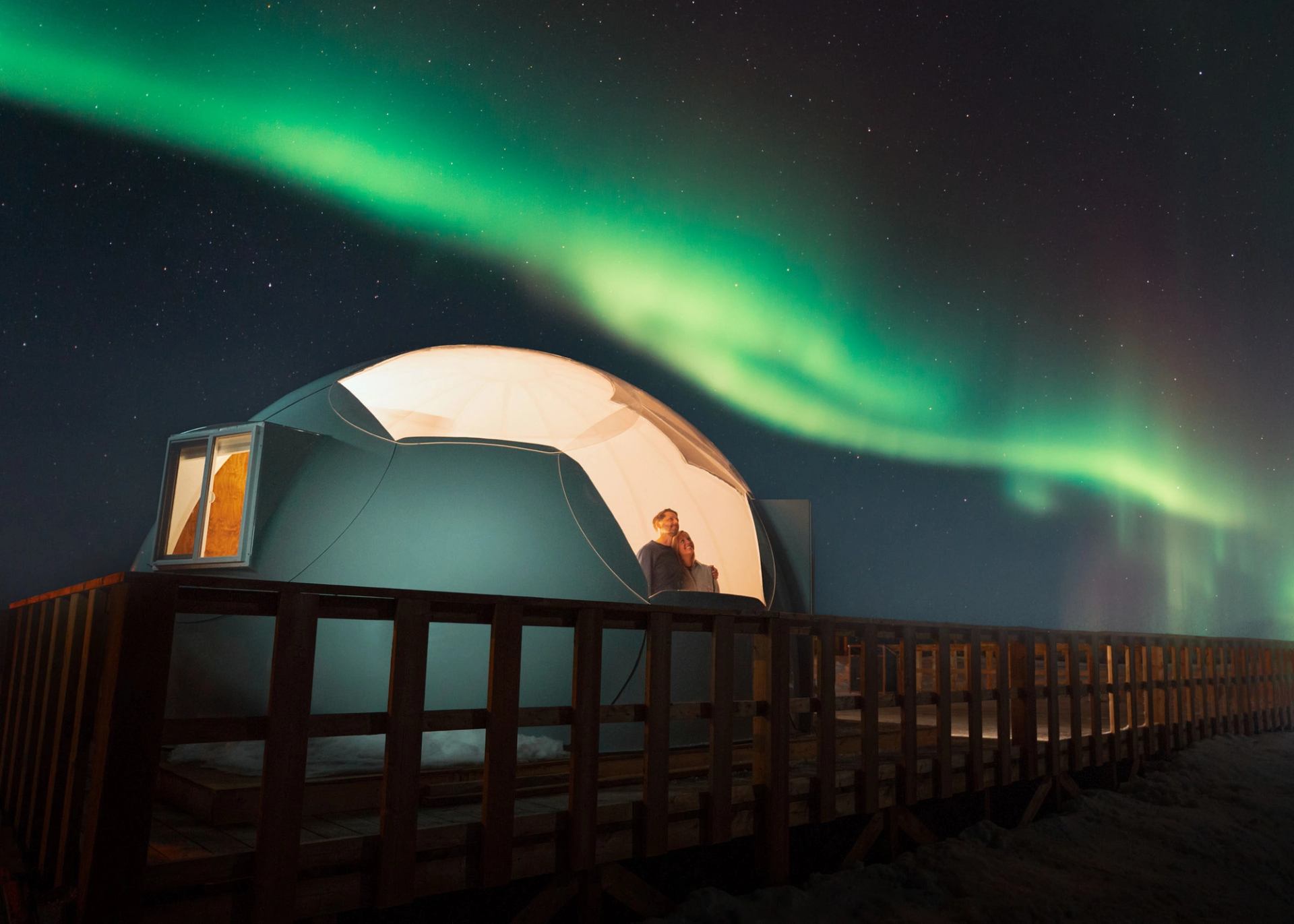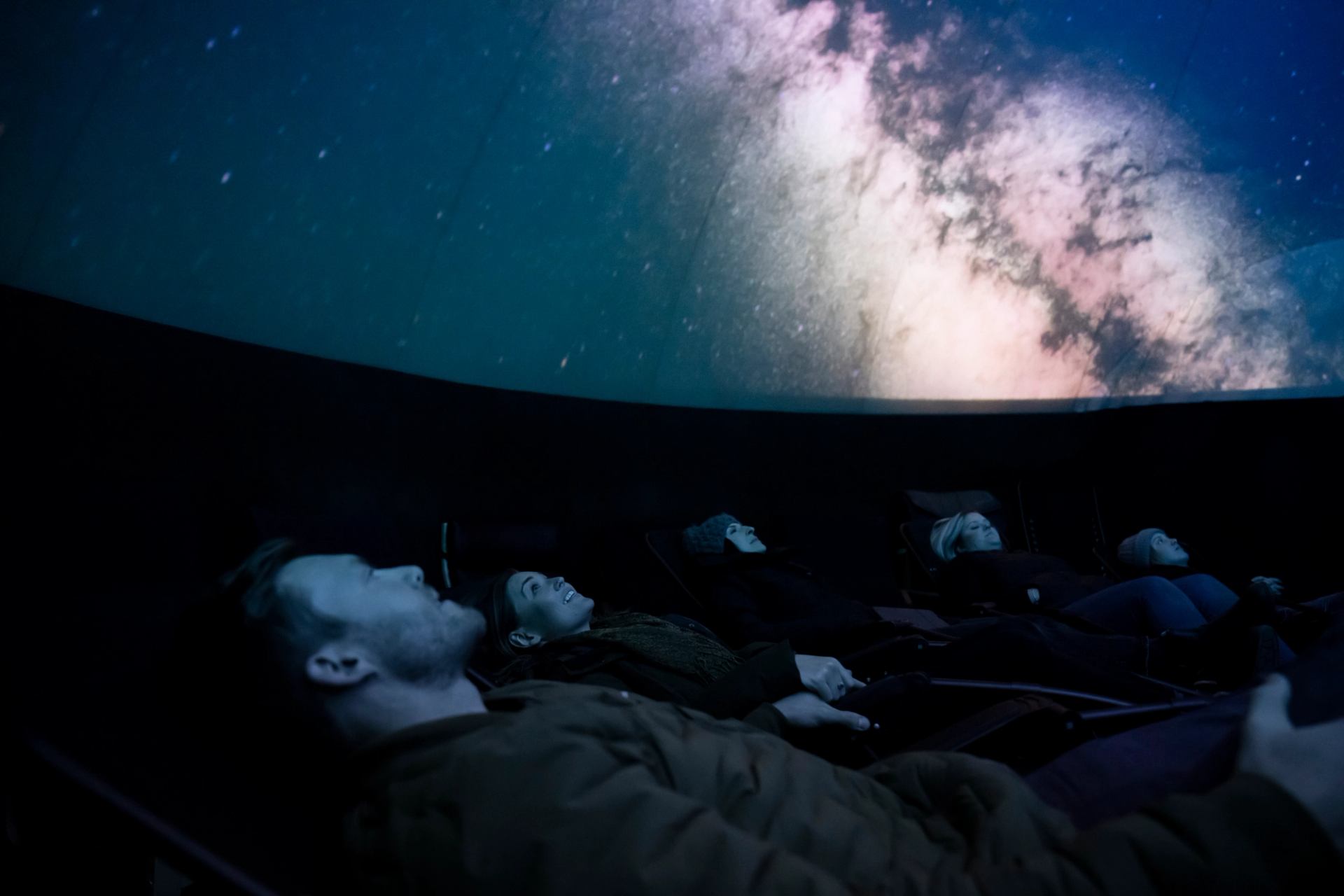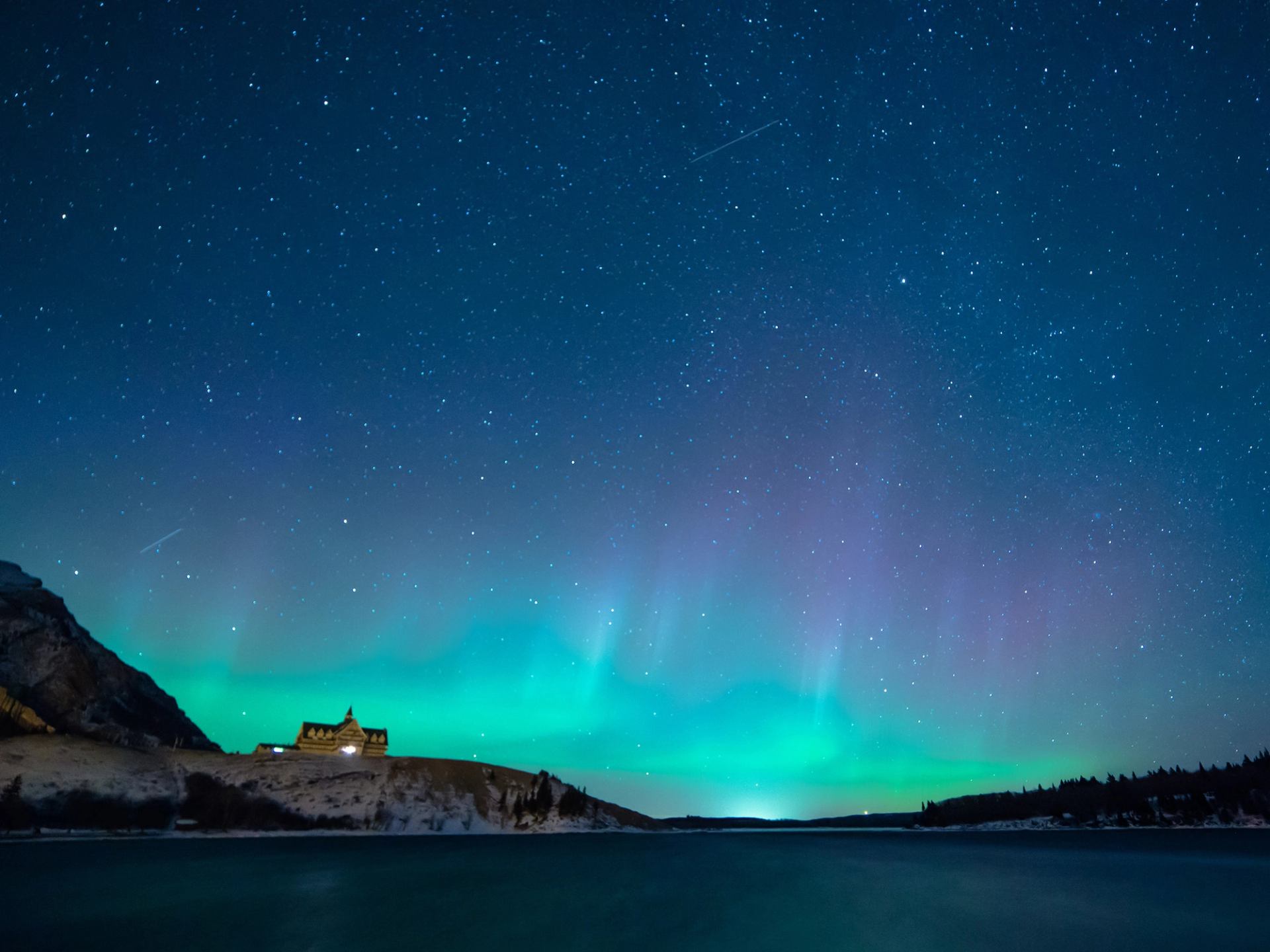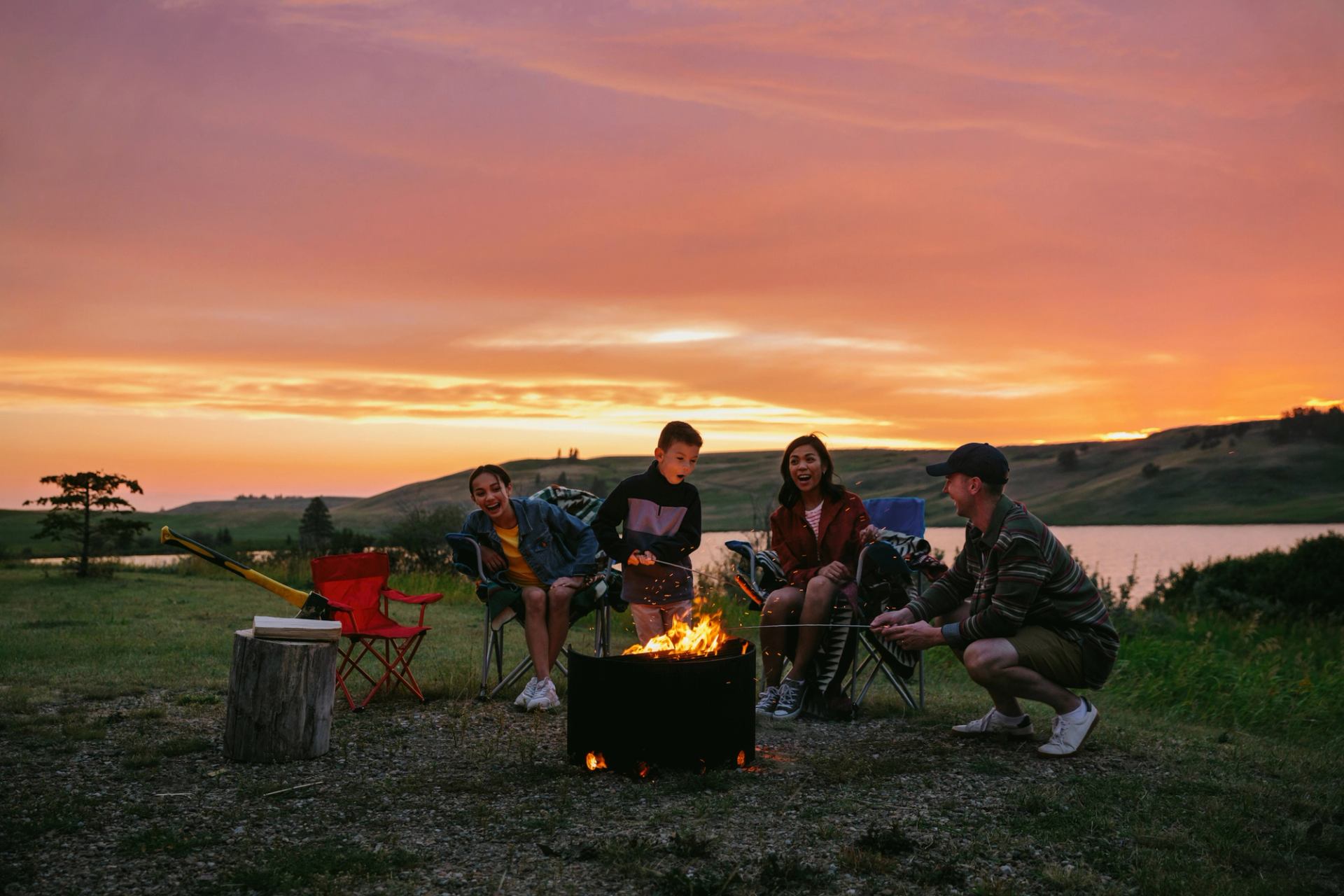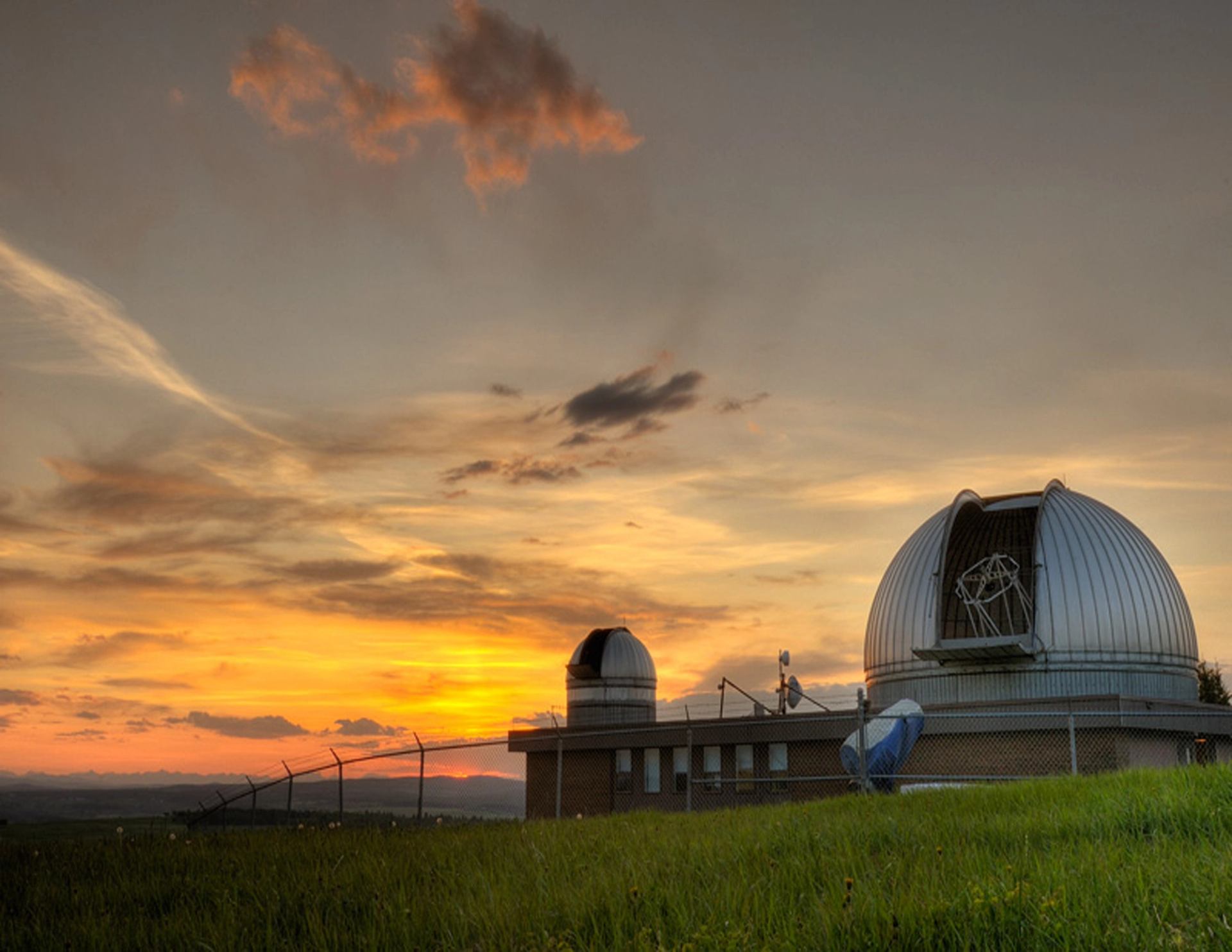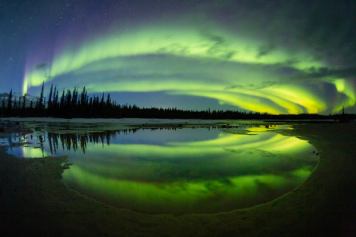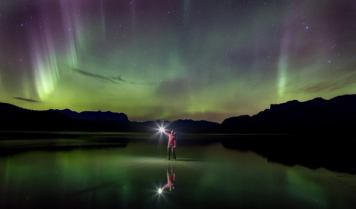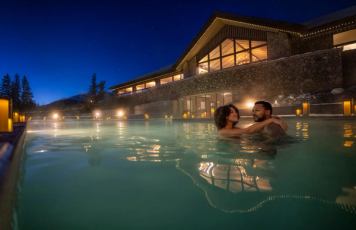Friendly travel warning: There’s a rainbow of lights that dance in Alberta’s night skies, producing feelings of wonder and joy. They are known as the northern lights.
Scientists call them Aurora Borealis, and Alberta is one of the world’s top places to see them.
Alberta is a dark sky paradise
Alberta’s dark skies and wide-open spaces make the province an excellent spot to chase the northern lights, especially from September to March.
If you’re willing to skip a few hours of sleep, the reward is basking in the glow of the lava lamp-like bands of light in shades of green, yellow, pink and mauve.
Alberta has five designated Dark Sky Preserves. When you head out, use these Aurora chasing tips from the pros. Want something extra special? Hook up with a tour group, get cozy in a see-through viewing dome, or head to a dark sky festival.
